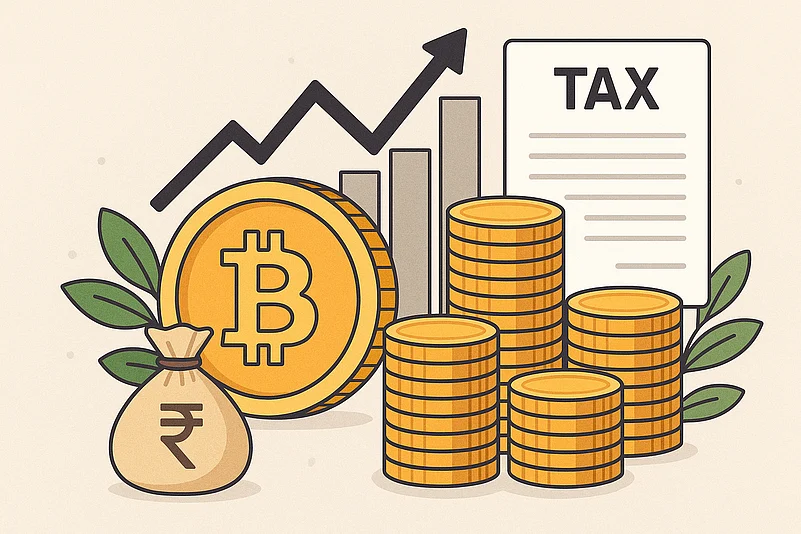Introduction
With digital assets becoming mainstream, one burning question for investors is: “Do I have to pay crypto taxes?” The answer is yes. Whether you hold Bitcoin, Ethereum, or altcoins, governments treat cryptocurrency as a taxable asset.
Understanding crypto taxes is essential if you want to stay compliant, avoid penalties, and maximize your gains. This guide covers how crypto taxes work in 2025, which transactions are taxable, and strategies to simplify reporting.
Are Crypto Transactions Taxable?
Yes. In most countries, crypto taxes apply whenever you dispose of or earn cryptocurrency. Here’s a breakdown:
- Buying crypto with fiat (USD, GBP): Not taxable.
- Selling crypto for cash: Subject to capital gains tax.
- Trading one crypto for another (BTC → ETH): Taxable as capital gains.
- Spending crypto for goods/services: Taxable because it’s considered disposal.
- Earning crypto (mining, staking, airdrops): Taxable as income.
Simply holding your coins (HODLing) does not trigger crypto taxes.
Crypto Taxes in the UK
The UK’s HMRC treats crypto as an asset, and you may owe Capital Gains Tax (CGT) or Income Tax depending on your activity:
- Capital Gains Tax (CGT): Selling, trading, or spending crypto may trigger CGT if profits exceed the annual allowance.
- Income Tax: If you mine, stake, or receive crypto as payment, it’s treated as income.
- Record keeping: HMRC requires detailed logs of every crypto transaction for accurate reporting.
Crypto Taxes in the US
In the US, the IRS classifies cryptocurrency as property, meaning crypto taxes apply when assets are sold, traded, or earned.
- Capital Gains Tax: Profits from selling crypto are taxed. Short-term gains (under 1 year) are taxed at higher rates than long-term gains.
- Income Tax: Mining, staking, and crypto payments are considered income.
- Reporting Requirement: The IRS requires you to declare crypto holdings and earnings on your tax return.
Failure to report crypto taxes can result in audits and penalties.
Common Taxable Events in Crypto
Here’s a quick checklist of when you’ll owe crypto taxes:
✅ Selling crypto for fiat currency
✅ Trading one crypto for another
✅ Spending crypto on purchases
✅ Earning crypto from mining, staking, or rewards
❌ Holding crypto without selling or trading does not incur taxes.
How to Stay Compliant with Crypto Taxes
To avoid mistakes and penalties, follow these steps:
- Keep accurate records of all your trades and earnings.
- Use crypto tax software (e.g., CoinTracker, Koinly, TokenTax) to simplify calculations.
- Stay updated on tax thresholds in your country.
- Consult a tax advisor if you trade actively or earn through DeFi, staking, or mining.
Conclusion
Crypto may be decentralized, but taxation is not. Whether in the UK, US, or globally, crypto taxes apply when you sell, trade, or earn digital assets.
The key to stress-free investing is simple: track your transactions, use tax software, and seek expert advice. By understanding how crypto taxes work, you can stay compliant and focus on building wealth in the crypto space.
Also Read:
- India Stock Market Holds Steady Despite Trump’s 25% Tariff Threat
- Suzlon Energy Shares Dip 4.07% as Markets Open Lower
FAQs on Crypto Taxes
1. Do I pay tax if I just hold crypto?
No. You only pay crypto taxes when you sell, trade, or earn crypto.
2. How is staking or mining crypto taxed?
They are taxed as income at the fair market value of the coins when received.
3. Can I avoid paying taxes on crypto?
Not legally. However, long-term holding, tax allowances, and strategic planning can reduce your crypto tax liability.
4. What happens if I don’t report crypto taxes?
You may face audits, penalties, or fines from tax authorities.
5. Are there crypto tax-free countries?
Yes. Countries like Portugal, Singapore, and UAE offer favorable or zero crypto tax policies.



